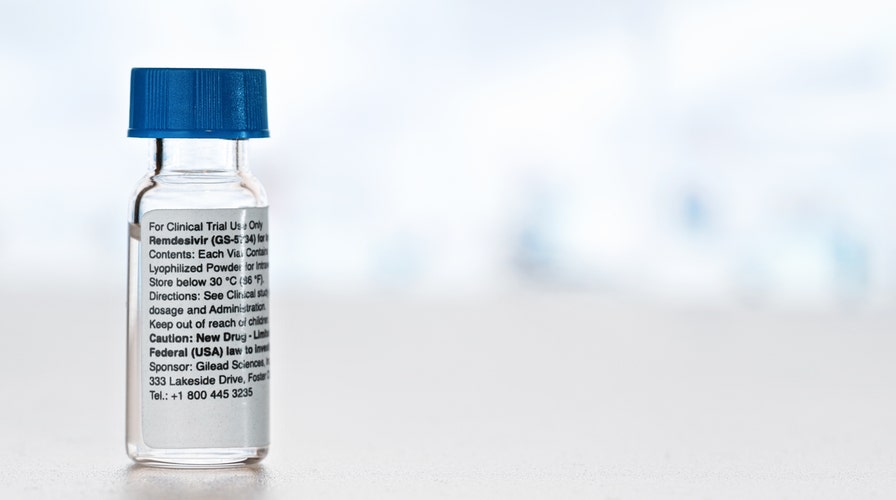Fox News Flash top headlines for May 18
Fox News Flash top headlines are here. Check out what's clicking on Foxnews.com.
Get all the latest news on coronavirus and more delivered daily to your inbox. Sign up here.
Biotech company Moderna announced on Monday that its potential COVID-19 vaccine produced antibodies in all 45 participants in a trial, a significant milestone in the fight against the coronavirus pandemic.
The Phase I trial of mRNA-1273 saw all patients receive a 25 microgram, 100 microgram or 250 microgram dose. Fifteen patients were in each group and those who participated in the study received two doses of the potential vaccine via an injection in the upper arm, 28 days apart.
At day 43, the group that received 25 micrograms, saw the same level of antibodies as people who had recovered from the disease. At day 43, the 100 microgram dose group saw levels of antibodies that "significantly exceeded the levels" seen in those who had recovered from the disease, the company added.
EXPERIMENTAL CORONAVIRUS TREATMENT LERONLIMAB RESULTED IN 'REMARKABLE RECOVERIES,' DEVELOPER SAYS
The Cambridge, Mass.-based biotech said second dose data for the 250 microgram group was not yet available.
“These interim Phase 1 data, while early, demonstrate that vaccination with mRNA-1273 elicits an immune response of the magnitude caused by natural infection starting with a dose as low as 25 µg,” said Tal Zaks, M.D., Ph.D., Chief Medical Officer at Moderna, in a statement. “When combined with the success in preventing viral replication in the lungs of a pre-clinical challenge model at a dose that elicited similar levels of neutralizing antibodies, these data substantiate our belief that mRNA-1273 has the potential to prevent COVID-19 disease and advance our ability to select a dose for pivotal trials.”
In addition, neutralizing antibodies against the novel coronavirus were produced from the vaccine in eight participants, four from the 25 microgram group and four from the 100 microgram group.
Moderna also explained mRNA-1273 was "generally safe and well tolerated," though it added there was one person in the 100 microgram group who had redness around the injection site. In the 250 microgram group, three patients had "grade 3 systemic symptoms, only following the second dose."
The drug from the biotech company, which uses messenger RNA therapeutics and vaccines for its drugs, has gotten some praise from the scientific community, despite still being studied.
In mid-April, Fox News medical contributor Dr. Marc Siegel appeared on "Tucker Carlson Tonight" and spoke briefly about the possible coronavirus vaccine, saying White House Coronavirus Task Force member Dr. Anthony Fauci had said he was optimistic about the process.
"Tony talked to me about the vaccine development. And he said that the Moderna vaccine that the NIH is looking at is very encouraging," Siegel told Carlson. "And it's about to go out of Phase I trials and soon into Phase II, that's where they really see how effective it is. That's where they look for the manufacturing process by the time it gets to market several months from now."
The Phase I study was led by the National Institute of Allergy and Infectious Diseases and was performed at Kaiser Permanente Washington Health Research Institute in Seattle.
FAUCI 'CAUTIOUSLY OPTIMISTIC' A CORONAVIRUS VACCINE CANDIDATE WILL BE EFFECTIVE
Earlier this month, Moderna announced the FDA had been awarded mRNA-1273 fast-track designation to accelerate the development of an effective COVID-19 vaccine.
In early May, Moderna announced the FDA approved its COVID-19 vaccine candidate, allowing it to move to Phase II, prior to publishing the Phase I results.
Moderna said it anticipates Phase III trials for the 25 and 100 microgram groups to start in July.
Shares of the biotech were surging in early Monday trading, up more than 24 percent to $89.47.
Currently, there is no known scientific cure for the disease known as COVID-19, however, a number of drugs are being tested to see if they can treat it.
CLICK HERE FOR COMPLETE CORONAVIRUS COVERAGE
As of Monday morning, more than 4.73 million coronavirus cases have been diagnosed worldwide, more than 1.48 million of which are in the U.S., the most impacted country on the planet.
Fox News' Kayla Rivas contributed to this story.









































